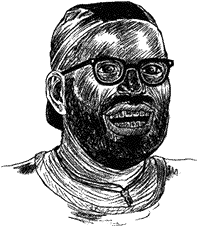Movies

U-Turn (Sony Pictures). Most critics attack Oliver Stone's latest movie, saying it exhibits his usual self-indulgence. Deemed particularly offensive are the skewed camera angles and choppy editing--"the Big Fat Over-Produced and Over-Directed Oliver Stone treatment" (Stephen Hunter, the Washington Post). The plot--which has Sean Penn stranded in a bizarre desert town and caught between a real-estate mogul (Nick Nolte) and his stepdaughter/wife (Jennifer Lopez), each of whom asks him to murder the other--is called "a primer in hard-boiled clichés" (Mike Clark, USA Today). Exempted from the general drubbing is Billy Bob Thornton's funny turn as an unhygienic redneck mechanic. (See the official site.)
Washington Square (Buena Vista Pictures). Applause for Europa, Europa director Agnieszka Holland's feminist adaptation of Henry James' novel, starring Albert Finney as an overbearing father and Jennifer Jason Leigh as his stubborn daughter. Washington Square is said to compare favorably with last winter's revisionist Portrait of a Lady, since it "respects James' complexities and bitter ironies" (David Ansen, Newsweek). Critics also praise its "brusque, energetic pace" (Janet Maslin, the New York Times) and Leigh's "heartbreakingly good" performance (People). The New Republic's Stanley Kauffmann dissents, calling the film "ill at ease, uncomfortable, straining for effect." (Download a trailer here.)
Soul Food (20th Century Fox). Like Waiting to Exhale, this film about the black bourgeoisie rakes in unexpectedly huge receipts--$30.4 million in two weeks. Some critics praise the film for featuring a hard-working family instead of Hollywood's usual black "pimps and junkies" (Roger Ebert, the Chicago Sun-Times). Others say it just replaces a negative stereotype with a schmaltzy one: "[I]t pushes emotional buttons with all the subtlety of a poke in the baby-back ribs" (Richard Corliss, Time). (Photos and the like are available here.)
Architecture
Guggenheim Museum (Bilbao, Spain). Critics anoint Los Angeles architect Frank Gehry's sprawling, postmodern titanium-and-stone edifice "one of the greatest buildings of the twentieth century" (Calvin Tomkins, The New Yorker). (Click here for a photo.) Gehry wins praise for his idiosyncratic, "cartoonish" style--the New York Times' Herbert Muschamp calls his innovations reminiscent of Frank Lloyd Wright. Some critics worry that the magnificent building will overshadow the art it houses, which will be mostly borrowed from the museum's New York branch.
Book
Toward the End of Time, by John Updike (Knopf). The novelist's 47th book is pronounced a "rare misfire" (Jeff Giles, Newsweek). Set in 2020 after a nuclear war, it is lambasted as consisting mainly of an old man's "bombast" (Richard Eder, the Los Angeles Times) about death, sex, and excrement. "How could such a gifted writer produce such a lousy book?" (Michiko Kakutani, the New York Times). One admirer is Margaret Atwood, writing in the New York Times Book Review: Updike "manages an amazing range of emotions with his usual grace and dexterity." (Another is Slate's Paul Berman. Click here for his review and here for an excerpt from the book.)
Death
Roy Lichtenstein (1923-1997). Upon his death, the pop artist ascends from the controversial to the canonical. Having endlessly debated the staying power of his '60s comic-strip sendups, most critics now conclude his art will last. "With good humor and icy elegance ... Lichtenstein was able to construct an art that approached real monumentality," says Time's Robert Hughes. Critics also say Lichtenstein succeeded as both technical painter and social commentator, and that he was ahead of his time: "[H]e was a saboteur, offering 1990s irony in the 1960s" (Michael Kimmelman, the New York Times).
Recent "Summary Judgment" columns
Movie--The Edge;
Movie--The Peacemaker;
Book--Big Trouble: A Murder in a Small Western Town Sets Off a Struggle for the Soul of America, by J. Anthony Lukas;
Book--Timequake, by Kurt Vonnegut;
Music--Time Out of Mind, by Bob Dylan, and Bridges to Babylon, by the Rolling Stones;
Television--ER: "Ambush" (NBC);
Art--"Sensations: Young British Artists From the Saatchi Collection" (Royal Academy of Art, London).
Book--The Royals, by Kitty Kelley;
Book--Underworld, by Don DeLillo;
Book--Great Apes, by Will Self;
Art--"Robert Rauschenberg: A Retrospective" (Guggenheim Museums and Ace Gallery, New York);
Movie--A Thousand Acres;
Movie--The Ice Storm;
Television--Veronica's Closet (NBC).
Movie--L.A. Confidential;
Movie--In & Out;
Television--Nothing Sacred (ABC);
Television--Brooklyn South (CBS);
Television--Michael Hayes (CBS);
Music--Candle in the Wind 1997, by Elton John;
Museum--Museum of Jewish Heritage: A Living Memorial to the Holocaust.
Television--Sister Wendy's Story of Painting (PBS);
Television--Ally McBeal (Fox);
Movie--She's So Lovely;
Movie--Sunday;
Book--The Farewell Symphony, by Edmund White;
Book--America in Black and White: One Nation, Indivisible, by Stephan and Abigail Thernstrom.
--Compiled by Franklin Foer and the editors of Slate.
